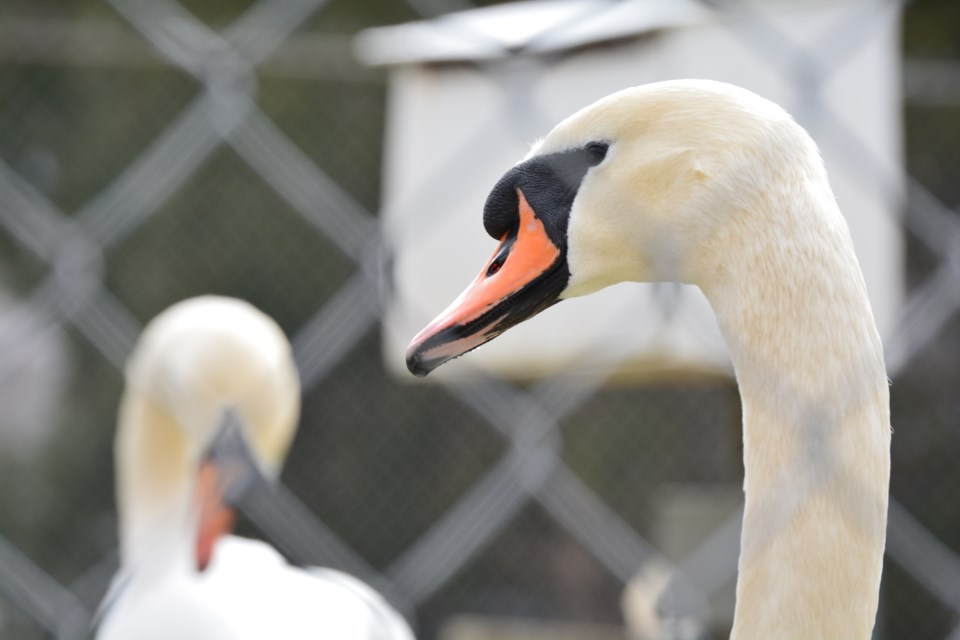“Regal Kate,” one of the mute swans that the City of Stratford released this month, has died.
Stratford residents have taken to social media to mourn the bird, which was a mating pair with Will, another mute swan.
Many have shared pictures, memories, and their thoughts on her death.
"My heart is broken," said Pauline Kasubeck in a comment on a post to Stratford Connect, a popular community group. Cathy Leonard, in another comment, said that this was a sad day for Stratford.
Quin Malott, parks, forestry, and cemetery manager for the city, confirmed that the swan was killed at night, most likely by a coyote or fox.
“We do the best we can with the swans,” Malott said. “We’re always monitoring them … but when something happens like this at night, there’s not a lot we can do.”
Malott explained that the parks department is always monitoring the swans, doing a check everyday, and they primarily try to keep them close to the water, which is the birds’ main form of defence and escape from predators like coyotes.
As for whether or not the birds’ wings should be clipped, Malott said that it is the law.
Mute swans are considered invasive species in Canada, “brought over by European settlers during the 1870s to adorn parks, gardens, and estates,” according to Canada’s environment and natural resources department.
As such, there are measures which must be in place to control them from over-populating.
Kate's nest was attacked and the eggs abandoned, Malott confirmed. After an attack like this, it is common for the male swan to rest on the eggs for a period of time, but they won't stay on them, which is what happened in this case. Will has taken to the river.
It is doubtful the eggs will be able to hatch. After human contact, other swans won't take them and there won't be any parents to raise them, even if humans try to incubate them. As such, Kate and Will's eggs will be buried, Malott said.
There are no cygnets as of yet this year, with swans just starting to lay eggs now. Residents may spot young swans from last year, Malott said, but eggs are a month or so away from hatching. They usually take 28 days to incubate.
Malott said that the incident with Kate is concerning since it happened in the park, indicating that there are coyotes and/or foxes migrating farther into the city than expected, rather than keeping to the wilderness surrounding Stratford.
Given the attack and possibly more coyotes in town, Malott said that residents should keep their pets close at night especially.
RELATED: Coyote sightings on the rise but that may not be cause for concern


.jpeg;w=120;h=80;mode=crop)
